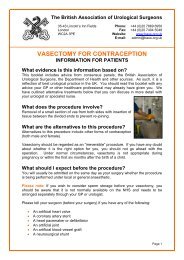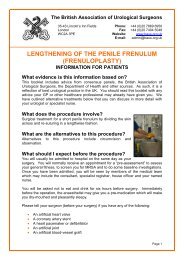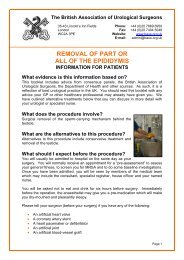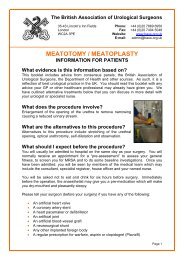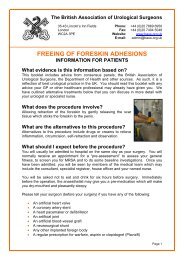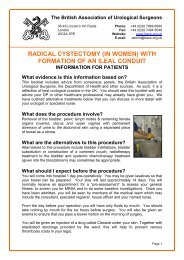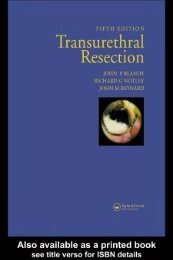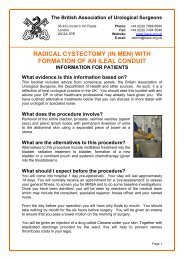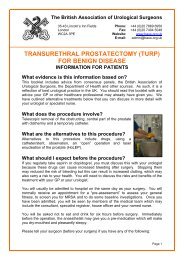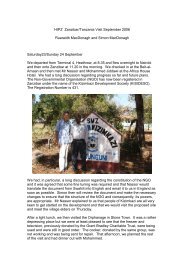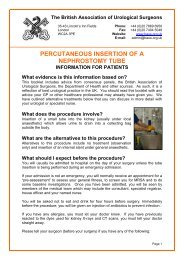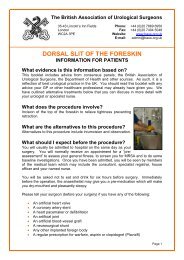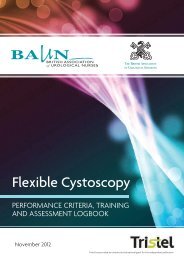MDT (multi-disciplinary team) guidance for managing prostate cancer
MDT (multi-disciplinary team) guidance for managing prostate cancer
MDT (multi-disciplinary team) guidance for managing prostate cancer
You also want an ePaper? Increase the reach of your titles
YUMPU automatically turns print PDFs into web optimized ePapers that Google loves.
o Faced with these figures, some patients would choose surgery, but many would choose<br />
conservative management. 40<br />
• The above findings are now updated to incorporate a further 3 years of follow up. At 12 years: 41<br />
o 12.5% of the surgery group and 17.9% of the watchful waiting group had died of <strong>prostate</strong><br />
<strong>cancer</strong> (difference = 5.4%, 95%CI: 0.2−11.1).<br />
o 19.3% of men in the surgery group and 26% of men in the watchful waiting group had been<br />
diagnosed with distant metastases (difference = 6.7%, 95%CI: 0.2−13.2).<br />
o This follow-up analysis was consistent with the previous findings. Radical <strong>prostate</strong>ctomy can<br />
reduce <strong>prostate</strong> <strong>cancer</strong> mortality and risk of metastases but no further benefits were seen<br />
beyond 10 years of follow up in this study.<br />
Neoadjuvant and adjuvant hormone therapy with radical <strong>prostate</strong>ctomy<br />
• At present, evidence suggests that the down-staging achieved with neoadjuvant hormone<br />
therapy does not translate into improved DFS, and there<strong>for</strong>e cannot be recommended outside<br />
of clinical trials. 42−45<br />
• Similarly, there is currently no evidence that adjuvant hormone therapy provides a survival<br />
46, 47<br />
advantage <strong>for</strong> patients with pathologically proven localised disease.<br />
Adjuvant radiotherapy after radical <strong>prostate</strong>ctomy<br />
• The EORTC 22911 study was designed to investigate benefit <strong>for</strong> immediate postoperative<br />
radiotherapy in 502 patients with pT3 disease or positive surgical margins as opposed to<br />
radiotherapy offered <strong>for</strong> biochemical or clinical relapse. 48<br />
o After a median follow up of 5 years, biochemical progression-free survival (PFS) was<br />
significantly improved in the immediate radiotherapy group (74.0% versus 52.6%;<br />
p



